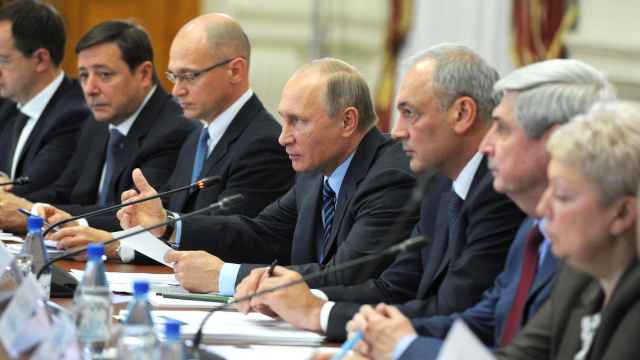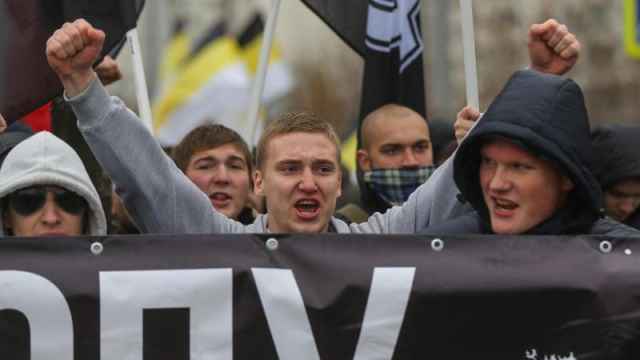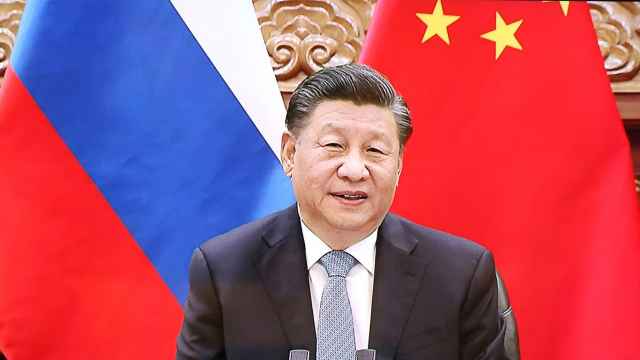President Vladimir Putin has suddenly supported the idea of passing a special law on the Russian nation. To be precise, the new law would be called “On the Russian Nation and the Management of Interethnic Relations.”
What kind of law would this be? Knowing how the concept of the state functions in the minds of Russian officials today, the law could potentially serve three purposes.
The first is simple. This could be a law officials create as part of their endless struggles among themselves for power and financial resources. For example, the Federal Agency for the Affairs of Nationalities, may be seeking to expand. It wants to be involved in the integration of migrants, in the affairs of so-called “compatriots” and in monitoring actual and potential ethnic and religious conflicts. Whether or not that will make things better for migrants and Russian citizens remains to be seen.
The second purpose may be symbolic. After the notorious riots fomented by nationalists on Manezh Square in 2010, a special strategy was adopted. Its essence is that the state supports an understanding of the Russian nation as a broad political unity, but considers it Russian and Orthodox Christian at its core.
The government may be aiming to remind citizens of this position. Russian nationalists have been dreaming for decades of a “law on the Russian people,” and those who still pin their hopes on the Kremlin will receive new assurances. The Kremlin, which has traditionally opposed all ethnic-nationalism, is unlikely to play along with them intentionally. However, any attempt to legitimize the idea of a Russian-Orthodox core of the “political nation” is inherently discriminatory, not to mention, a cause celebre for Russian nationalists. And even more so for the Russian Orthodox Church.
It can also be assumed that the government views this law as a symbolic act to strengthen the political unity of the nation against its enemies. This unity, which has become something tangible since the annexation of Crimea in 2014, is still being successfully nourished by confrontation with the West. But it is hard to keep raising the stakes, so the instruments of mobilization must be diversified. Making a show of passing a law can be a purely propagandistic gesture when necessary.
Finally, a third function of the law is one that will provide leverage for real policy change, internal or external. Domestic ethnic policy cannot be changed so easily, and it should not be expected unless there are some serious upheavals. You cannot write a law to cover that in advance.
It makes more sense to expect a change in foreign policy. This is suggested by the fact that the president made separate mention of granting “compatriots” citizenship. The mass granting of Russian citizenship played an enormous role in South Ossetia during Georgia's “five day war” in August 2008. I do not think anyone in the Russian government today has similar plans, but the topic of “compatriots” is explosive in itself.
If there is a law on the Russian nation, it will almost certainly tie ethnicity in with national security issues. It will also continue the vague, ideological quest that some have politely referred to as “the ideology of new state nationalism.”
Alexander Verkhovsky is the Director of the SOVA Center for Information and Analysis.
A Message from The Moscow Times:
Dear readers,
We are facing unprecedented challenges. Russia's Prosecutor General's Office has designated The Moscow Times as an "undesirable" organization, criminalizing our work and putting our staff at risk of prosecution. This follows our earlier unjust labeling as a "foreign agent."
These actions are direct attempts to silence independent journalism in Russia. The authorities claim our work "discredits the decisions of the Russian leadership." We see things differently: we strive to provide accurate, unbiased reporting on Russia.
We, the journalists of The Moscow Times, refuse to be silenced. But to continue our work, we need your help.
Your support, no matter how small, makes a world of difference. If you can, please support us monthly starting from just $2. It's quick to set up, and every contribution makes a significant impact.
By supporting The Moscow Times, you're defending open, independent journalism in the face of repression. Thank you for standing with us.
Remind me later.







